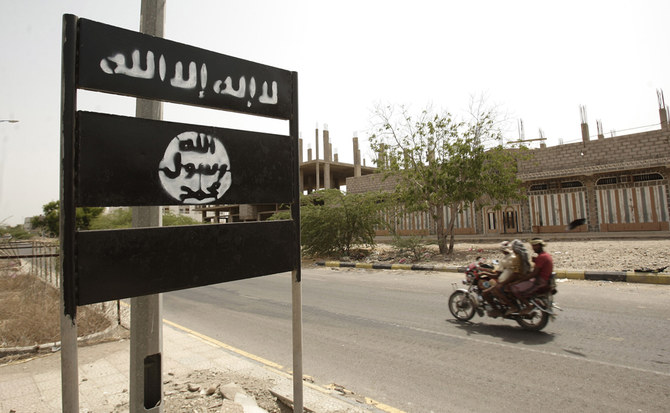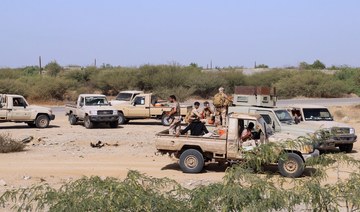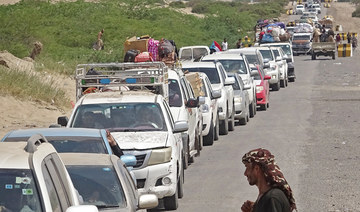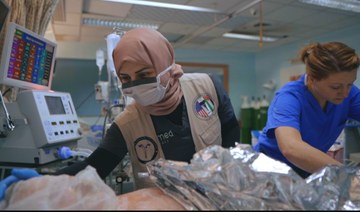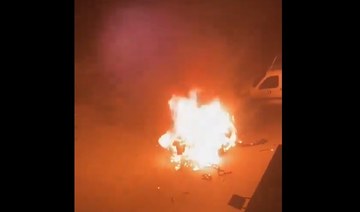AL-MUKALLA: The suspected Al-Qaeda terrorists holding five kidnapped UN workers are seeking to swap them for prisoners detained by the Yemeni government in Aden, according to a local security official.
The abductions happened on Friday when the workers — four Yemenis and a foreigner — traveling in two armored vehicles and with a military escort were confronted by a group of armed men in the Moudia district of Abyan as they were heading back to Aden from a field visit.
On Monday, a senior security official told Arab News that the militants had issued their demands for the release of the workers and that the governor of Abyan, Abu Baker Hussein Salem, had asked local tribal figures to talk to them.
“These are mercenaries known to be affiliated with Al-Qaeda. Security services (in Abyan) killed one of their leaders six months ago,” the official said on condition of anonymity.
“There are negotiations with the terrorists. We do not want to use force in order not to harm the hostages,” he said, but added that a military operation would be initiated if the captors refused to release the workers.
Al-Sharae newspaper reported on Sunday that two people representing the militants said the UN workers would be freed in return for the release of the prisoners in Aden and payment of a SR1 million ($266,000) ransom.
The governor of Abyan formed a committee of four officials, including directors of Moudia and Al-Wadhea, to talk to them, the report said.
Russell Geekie, a senior communications adviser to the UN Resident and Humanitarian Coordinator for Yemen, confirmed the kidnappings and said the UN was in touch with local officials to help get the workers back to safety.
“The United Nations is in close contact with the authorities to secure their release,” he told Arab News in an email statement.
Meanwhile, Yemen’s Information, Culture and Tourism Minister Muammar Al-Eryani on Monday accused the Iran-backed Houthis of turning civilian facilities in areas under their control, including Sanaa airport, into military bases for assembling and launching missiles, and renewed calls for the movement to be blacklisted.
Speaking to reporters in the central city of Marib along with the army’s chief of staff, Lt. Gen. Sagheer bin Aziz, Al-Eryani said the Houthis had rejected efforts to end the war, threatened maritime navigation, mounted deadly strikes on civilian sites in Yemen, Saudi Arabia and the UAE, and ignored local and international warnings over the decaying oil tanker in the Red Sea.
Houthi attacks and military operations had increased fourfold since February last year when the US removed the group’s name from its list of foreign terrorist organizations, he said.
“Al-Houthi considered the silence of the international community a green light for the escalation. It is time for the international community to support the government’s efforts to restore the state and bring down the coup,” he said, adding that the Houthis were behaving like other terrorist organizations and executing Iranian agendas in Yemen.
“We reiterate our call to the international community and the UN Security Council that they must include the Houthi militia and its leadership on the lists of terrorists and prosecute them in international courts as war criminals,” he said.
Bin Aziz added that Yemen’s armed forces were determined to defeat the Houthis militarily after peaceful efforts to convince them to stop fighting had failed.
“They will only submit to peace by force,” he said.
The army chief also repeated the accusation that Iran had provided the Houthis with the “tools of death,” adding: “Iran has put all its weight, industrial capabilities and experts into this war.”



